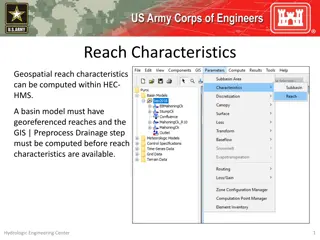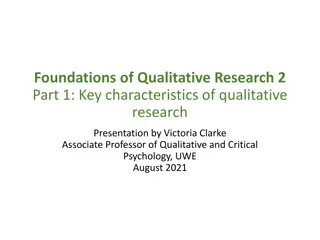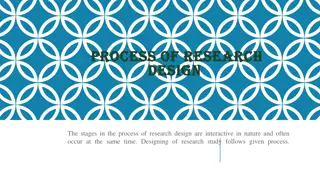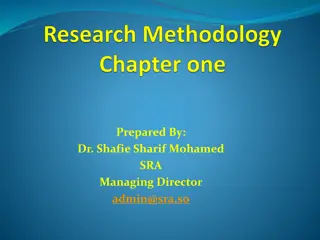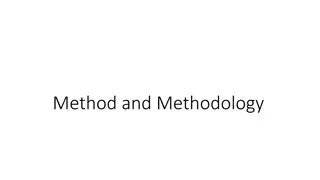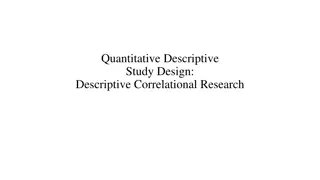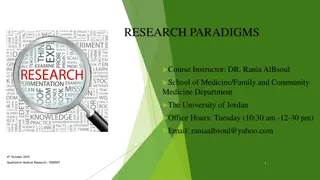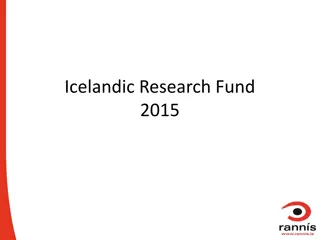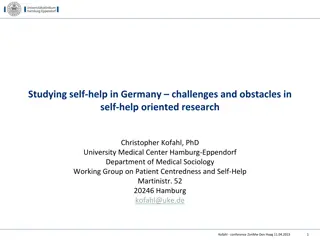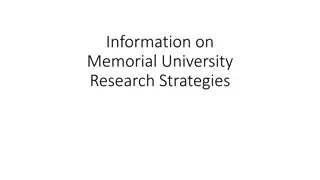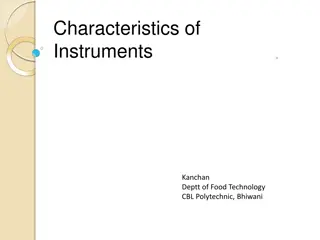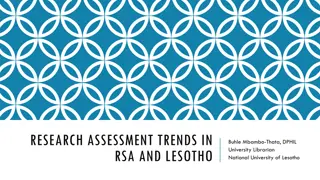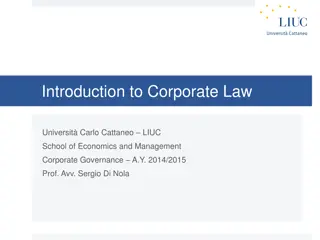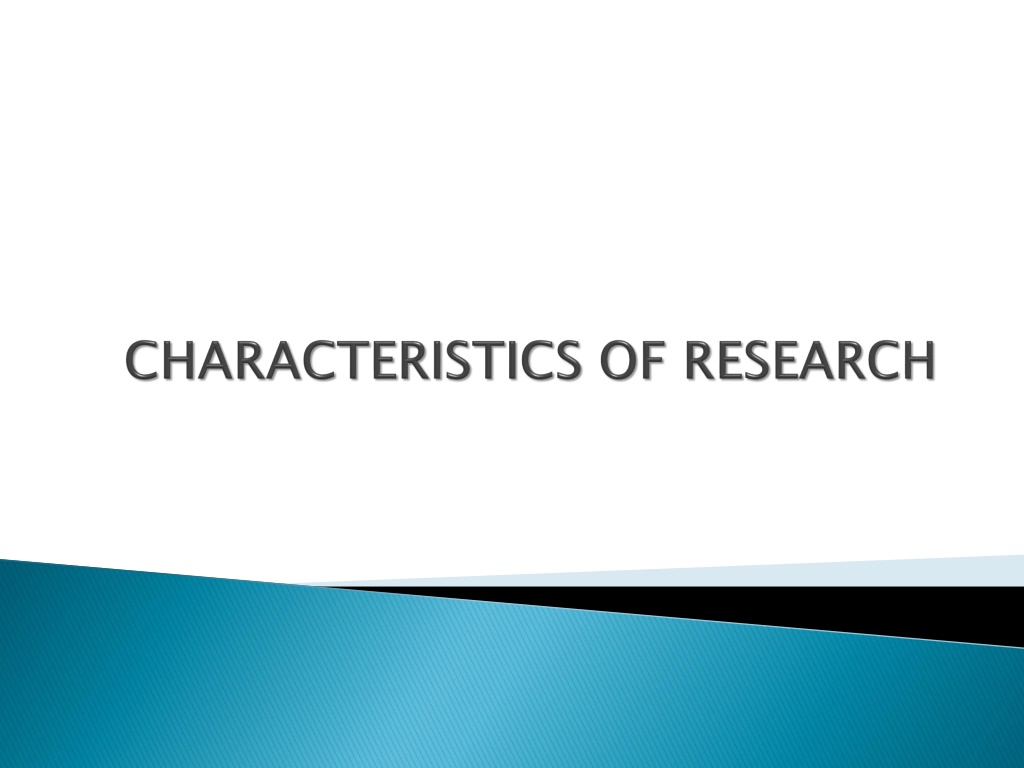
Key Characteristics of Unbiased Research
"Learn about essential characteristics that ensure research is free of biases, prejudices, and errors. Explore concepts like generalization, control, rigor, empiricism, and systematic approach in research. Enhance your understanding of reliability, validity, hypothesis use, and analytical accuracy for credible and critical research outcomes."
Download Presentation

Please find below an Image/Link to download the presentation.
The content on the website is provided AS IS for your information and personal use only. It may not be sold, licensed, or shared on other websites without obtaining consent from the author. If you encounter any issues during the download, it is possible that the publisher has removed the file from their server.
You are allowed to download the files provided on this website for personal or commercial use, subject to the condition that they are used lawfully. All files are the property of their respective owners.
The content on the website is provided AS IS for your information and personal use only. It may not be sold, licensed, or shared on other websites without obtaining consent from the author.
E N D
Presentation Transcript
Characteristics of research determine whether a research is free of biases, prejudices, and subjective errors or not. The terms are very commonly used in research and the success of any research depends on these terms. They can be summarised as: 1. Generalized. 2. Controlled. 3. Rigorous. 4. Empirical. 5. Systematic 6. Reliability. 7. Validity. 8. Employs hypothesis 9. Analytical & Accuracy. 10. Credibility. 11. Critical
1. Generalised: The researcher usually divides the identified population into smaller samples depending on the resource availability at the time of research being conducted. This sample is understood to be the appropriate representative of the identified population therefore the findings should also be applicable to and representative of the entire population. The analytical information obtained from studying these samples should be give a fair idea of total population of being follower of particular ideology, beliefs, social stigmas, driving force, etc. E.g. A study to understand the occupancy statistics and patterns of small hotels and resorts in a given city would involve the researcher studying selected properties after the city is divided into zones (East, West, North, South and Central). He may also divide the properties on the basis of number of rooms for categorisation and selection for study purposes thus ensuring that the findings are representative of entire city.
2. Controlled: The concept of control implies that, in exploring (factors), you set up your study in a way that minimizes the effects of other factors affecting the relationship. controlling factors and the other variables may be classified as possible effects of controlling factors. Laboratory experiments as in pure sciences like chemistry can be controlled but any study that involves societal issues cannot be controlled. E.g. Destination studies are not controllable as they have variables seasonality, etc but studying the effects of standard operating procedures in a hotel applied in a particular service can be controlled. causality in relation to two variables Some variables are classified as like geography, climate, accessibility,
3. Rigorous: One must be careful in ensuring that the procedures followed to find answers to questions are relevant, appropriate and justified. Again, the degree of rigor varies markedly between the physical and social sciences and within the social sciences. 4. Empirical: The processes adopted should be tested for the accuracy and each step should be coherent in progression. This means that any conclusions drawn are based upon firm data gathered from information collected from real life experiences or observations. Empirical nature of research means that the research has been conducted following rigorous scientific methods and procedures. Quantitative research is easier to prove scientifically than qualitative research. In qualitative research biases and prejudice are easy to occur.
5. Systematic: The procedure or process being developed to undertake a study should be carefully drafted to ensure that resources utilization is optimized. Chaotic or disorganized procedures would never yield expected outcomes. The steps should follow a logical sequence to get to the desired outcome. E.g The meal in a fine dine restaurant at a five star hotel cannot commence with dessert being served before the starter or soup course. 6. Reliability: This is a the degree to which the result of a measurement, calculation, or specification can be depended on to be accurate. It is difficult to be measured accurately, but now there are instruments which can estimate the reliability of a research. It is the extent to which an experiment, test, measuring procedure, research, research instrument, tool or procedure yields the same results on repeated trials. If any research yields similar results each time it is undertaken with similar population and with similar procedures, it is called to be a reliable research.
7. Validity & Verifiability: It is the extent to which a concept, conclusion corresponds accurately to the real world. The word "valid" is derived from the Latin validus, meaning strong. This should not be confused with notions of certainty nor necessity. The validity of a measurement tool (for example, a test in education) is considered to be the degree to which the tool measures what it claims to measure. Validity is based on the strength of a collection of different types of evidence. In terms of research validity is the strength with which we can make research conclusions, Validation refers to accuracy of measurement whether or not it measures what it is supposed to measure. It also ascertains the application of research in finding the solution to an issue in different conditions. This gives a clear direction to the research activity. The findings of a study should be verifiable by the researcher as well as anyone else who wants to conduct the study on similar guidelines/ under similar conditions. or measurement is well-founded and likely assumptions or propositions true or false.
8. Employs Hypothesis: Any research definitely begins with formulation of a hypothesis. It is a supposition or proposed explanation made on the basis of limited evidence as a starting point for further investigation. A hypothesis can be defined as an educated guess about the relationship between two or more variables. In simple words a hypothesis is an idea around which one starts working before it is actually converted to research. A question is what forms the base and is later termed as hypothesis and it may or may not draw a logical outcome. Hypothesis may prove to be wrong or null or void after the study is conducted. A hypothesis is an informed and educated prediction or explanation about something. Part of the research process involves testing the hypothesis, and then examining the results of these tests as they relate to both the hypothesis and the world around you. When are searcher forms a hypothesis, this acts like a map through the research study. It tells the researcher which factors are important to study and how they might be related to each other or caused by a manipulation that the researcher introduces (e.g. a program, treatment or change in the environment). With this map, the researcher can interpret the information he/she collects and can make sound conclusions about the results.
9. Analytical & Accurate : A research should be focussed not only about what is happening but also on how and why a particular phenomenon, process draws certain conclusions. Any data collected if does not yield results or is unsuitable to be used for further studies or applications disrupts the purpose of research. Therefore, data collected should be reasonable and free of errors to be easily analysed. Accuracy is also the degree to which each research process, instrument, and tool is related to each other. Accuracy also measures whether research tools have been selected in best possible manner and research procedures suits the research problem or not. Selection of appropriate data collection tools is essential for a research. E.g. Guest Comments Card in hotels or Feedback Collection Card in a dining outlet gives the guest a chance to be honest in commenting about the standard of services in comparison to asking them to give a verbal feedback.
10. Credibility: The extent to which an analysis of finding can be treated to be trustworthy is termed as credibility. This can only be assured by the use of the best source of information and best procedures in research. Researches based on secondary data are not reliable as such data may have been manipulated or distorted by earlier researchers to suit their work. The availability of secondary data from public domains is easy but cokes with lots of risks involved. The research study conducted based on primary data is always reliable and carries more credibility. A certain percentage of secondary data can be used if the primary source is not available but basing a research completely on secondary data when primary data can be gathered is least credible. When researcher gives accurate references in the research the credibility of the research increases but fake references also decrease the credibility of the research. 11. Critical: Critical scrutiny of the procedures used and the methods employed is crucial to a research enquiry. The process of investigation must be foolproof and free from drawbacks. The process adopted and the procedures used must be able to withstand critical scrutiny.



